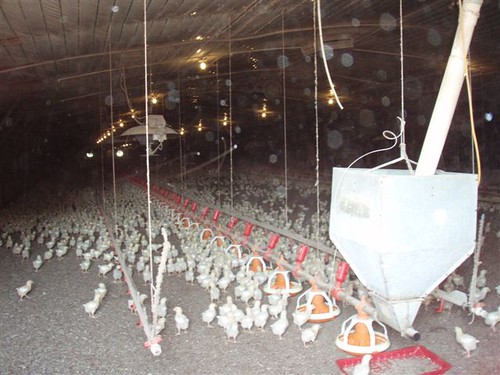
Diem Nguyen moved to the U.S. in the 1970s to pursue the American dream. She worked first as a restaurateur and then an accountant. But the career she cherishes the most is her current one—operating a chicken farm in rural Mississippi.
Raising chickens is no easy task. But USDA’s Natural Resources Conservation Service (NRCS) has helped Nguyen and her husband, John Pham, to not only boost their productivity but make their farm more environmental friendly, too.
Right now, NRCS conservationists at the Newton, Miss. field office are working with Nguyen and Pham to install compost and waste storage facilities as well as to implement the tools needed to turn chicken waste, known as litter, into fertilizer on their 135-acre farm. This work was done this year through the Environmental Quality Incentives Program (EQIP). These practices ensure chicken litter and remains are treated, stored and used properly.
NRCS has launched a litter distribution project in Mississippi that aims to build a market for chicken remains and litter while preventing litter from being stored in large quantities on landscapes. The litter distribution program funds the hauling of poultry litter from areas of high poultry production to those with low poultry production.
One of the compost facilities that NRCS helped install on Nguyen’s farm holds remains and litter. It is heated and the contents are left to compost, eventually providing organic fertilizer for grazing lands and row crops.

This reduces the amount of nutrients, such as nitrogen and phosphorous, released onto the landscape of the West Tallahala Watershed. Nutrients are among the top environmental concerns in Mississippi, and NRCS works to resolve these concerns by helping producers use remains and litter wisely.
In addition to assisting Nguyen with her chicken operation, NRCS has helped her diversify her operation. The chicken industry can be a gamble. For example, the day before Nguyen planned on harvesting 28,000 chickens, about half of the birds in one her chicken houses—about 13,500—died suddenly.
So NRCS has helped Nguyen’s family plant 36 acres of trees. These trees will allow them to have an additional source of income in addition to their chicken farm. Supervisory District Conservationist Joe Addy helped Nguyen with forestry management, forest site preparation and tree planting through EQIP.
Nguyen is the first to admit she is not a typical chicken farmer in Mississippi’s “Poultry Triangle.” And although the road to farming has been a bit bumpy at times, she is happy with the life she has built for her family in farming.



